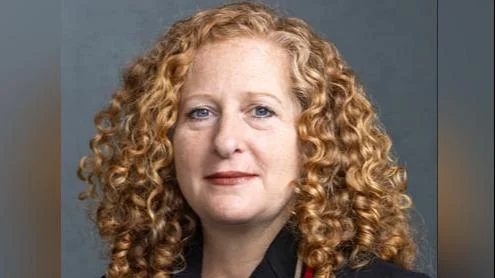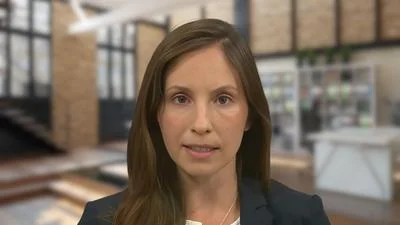Jennifer Mnookin Chancellor | Official website
Jennifer Mnookin Chancellor | Official website
Dan Hooper, PhD, has been appointed as the new director of the Wisconsin IceCube Particle Astrophysics Center (WIPAC). He will commence his role on September 9 and will report to the Vice Chancellor for Research. Additionally, Hooper will hold a joint faculty appointment with the Department of Physics.
Hooper currently serves as a Senior Scientist at the Fermi National Accelerator Laboratory and is a Professor of Astronomy and Astrophysics at the University of Chicago. He is also affiliated with the Kavli Institute for Cosmological Physics at the University of Chicago and is a fellow of the American Physical Society. His academic background includes earning a Ph.D. in physics from UW–Madison and completing postdoctoral work at Oxford University.
His research interests lie at the intersection of particle physics and cosmology, primarily focusing on studying particle physics beyond the Standard Model through astrophysical methods. His work encompasses areas such as dark matter, high-energy neutrino astronomy, gamma-ray astronomy, and cosmic rays.
Cynthia Czajkowski, interim vice chancellor for research, expressed her confidence in Hooper's capabilities: “I’m grateful to Kyle Cranmer, Data Science Institute director, who led the search committee for this internationally recognized leadership position, and to Jim Madsen, senior scientist, for his interim director role at WIPAC,” she said. “Dan’s proven track record of innovation and high-impact research, and his vision for WIPAC makes him the right person to help lead the next generation of the IceCube project and secure the future of UW–Madison’s world leadership in astroparticle physics.”
WIPAC manages several significant projects centered around the IceCube Neutrino Observatory located in Antarctica. This facility transforms a cubic kilometer of Antarctic ice into a detector that searches for nearly massless subatomic particles called neutrinos. These particles are key to probing some of the universe's most violent astrophysical events such as exploding stars and phenomena involving black holes.
Under agreements with the National Science Foundation (NSF), WIPAC oversees operations at IceCube Neutrino Observatory while supporting international collaborative research across more than 50 institutions worldwide. The center also spearheads initiatives like the IceCube Upgrade project aimed at enhancing low-energy sensitivity by adding seven densely instrumented strings near its central array.
The upgrade project is scheduled for completion in 2026 and aims to refine measurements related to neutrino oscillation parameters while serving as an R&D testbed for new devices. It will further enhance analysis precision both for new data collections as well as archived datasets.
Hooper expressed enthusiasm about his upcoming role: “I look forward to being part of the incredible science that is being carried out at WIPAC, and am honored to be entrusted with this role,” he stated. “I’m fully dedicated to working as hard as I can to ensure successful implementation of both IceCube Upgrade and IceCube-Gen2.”
Beyond its primary focus on neutrinos detected through ice-based observatories like Radio Neutrino Observatory-Greenland (RNO-G) or Askaran Radio Array (ARA), WIPAC engages in gamma-ray astronomy via projects such as High-Altitude Water Cherenkov experiment (HAWC) or Cherenkov Telescope Array (CTA).
In addition to his scientific endeavors which include authoring multiple books on cosmology topics ranging from "Dark Cosmos" (2006) through "Particle Cosmology And Astrophysics" (2024), Hooper remains active within broader scientific communities including organizing major international conferences or participating actively within Snowmass community planning exercises prioritizing particle physics research directions globally since 2020 alongside co-host Shalma Wegsman; they run podcast series Why This Universe? simplifying complex ideas behind modern-day physical theories into digestible formats accessible even non-specialist audiences alike.
By Natasha Kassulke
---






 Alerts Sign-up
Alerts Sign-up